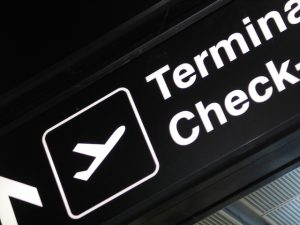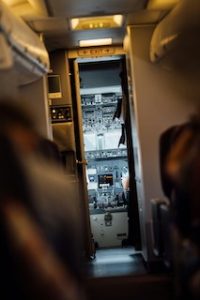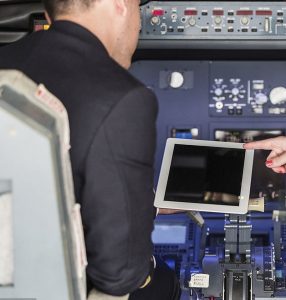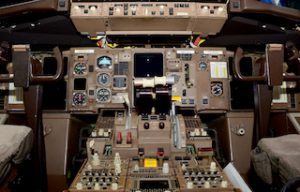MCC/APS And JOC Training Of Laminar Sim Flight School
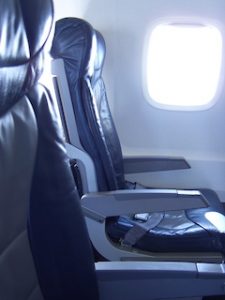
The journey to becoming a commercial airline pilot is filled with challenges and milestones that test a candidate’s technical prowess, cognitive abilities, and interpersonal skills. Among the most crucial phases in this journey is the transition from flying smaller, propeller-driven aircraft to the more complex and demanding world of jet-powered aircraft. This transition is not merely a change in the type of aircraft; it is a significant shift that requires a deep understanding of new systems, procedures, and the dynamics of operating in a multi-crew environment.
At Laminar Sim Flight School, aspiring airline pilots are provided with the essential training needed to make this transition smoothly and effectively. The school’s Multi-Crew Cooperation (MCC) course, the Airline Pilot Standards Multi-Crew Cooperation (APS MCC) course, and the Jet Orientation Course (JOC) are designed to equip pilots with the knowledge, skills, and experience required to operate jet-powered aircraft in a professional airline environment. These courses are integral to preparing pilots for the complexities of modern aviation, ensuring they are not only competent in handling the technical aspects of flying a jet but also proficient in the collaborative, high-pressure environment of a multi-crew cockpit.
MCC and APS MCC training of Laminar Sim flight school
The transition from single-pilot operations to a multi-crew environment is one of the most significant shifts in a pilot’s career. In a multi-crew environment, effective communication, teamwork, and coordination are paramount to ensuring the safe and efficient operation of the aircraft. This is where the Multi-Crew Cooperation (MCC) course comes into play.
Multi-Crew Cooperation (MCC) training is designed to teach pilots the principles of working effectively as part of a team in a multi-crew cockpit. This involves understanding the roles and responsibilities of both the Pilot in Command (PIC) and the First Officer (FO), as well as how to manage the interaction between the two. The focus of this flight school is on developing the skills needed to cooperate with other crew members, share tasks efficiently, and make collective decisions under pressure.
The MCC course at Laminar Sim Flight School covers a range of critical areas, including:
- Crew Resource Management (CRM): This is the cornerstone of multi-crew operations. CRM involves the effective use of all available resources—human, hardware, and information—to ensure safe and efficient flight operations. Pilots learn how to communicate clearly and assertively, resolve conflicts, and manage workload distribution to prevent errors and maintain situational awareness.
- Standard Operating Procedures (SOPs): SOPs are the standardised procedures that govern every aspect of flight operations in an airline environment. During MCC training, pilots are taught by the instructors of Laminar Sim flight school how to adhere to these procedures consistently and accurately, ensuring that all actions taken during a flight are in line with the airline’s established protocols. This includes everything from pre-flight checks to in-flight decision-making and post-flight procedures.
- Decision-Making and Problem-Solving: In a multi-crew environment, decision-making is often a collaborative process. Pilots must be able to assess situations quickly, communicate their assessments to their colleagues, and arrive at a consensus on the best course of action. MCC training emphasises the importance of structured decision-making processes, such as the use of the “PACE” (Problem, Alternatives, Consequences, Execute) model, to ensure that decisions are made methodically and effectively.
- Workload Management: Operating a jet-powered aircraft involves managing a significant amount of information and tasks simultaneously. MCC training teaches pilots how to prioritize tasks, delegate responsibilities, and manage their workload to prevent overload and ensure that critical tasks are completed correctly and on time.
The Airline Pilot Standards MCC (APS MCC) course at Laminar Sim builds on the foundation provided by the standard MCC course, offering an enhanced and more comprehensive training experience. The APS MCC course is specifically designed to meet the requirements of modern airlines and provides additional training in areas such as advanced aircraft systems, handling abnormal and emergency situations, and a deeper focus on jet-specific operations.
The APS MCC course is particularly valuable for pilots who are looking to enhance their employability in the competitive airline job market. By completing the APS MCC course, pilots demonstrate to potential employers that they have received the highest standard of multi-crew training and are well-prepared for the challenges of operating in a professional airline environment. The APS MCC course also provides pilots with more flight hours in a multi-crew environment, which can be a critical factor in meeting the minimum requirements for many airline pilot positions.
Jet Orientation Course (JOC): Bridging the Gap to Jet-Powered Aircraft
While MCC and APS MCC training focus on the multi-crew aspects of airline operations, the **Jet Orientation Course (JOC)** at Laminar Sim Flight School is specifically designed to prepare pilots for the technical and operational challenges of flying jet-powered aircraft. The JOC is a vital component of a pilot’s training, as it bridges the gap between the skills learned during initial pilot training and the demands of operating a jet in an airline environment.
Jet-powered aircraft differ significantly from propeller-driven aircraft in several key areas, including:
- Performance Characteristics: Jet-powered aircraft are faster, heavier, and operate at higher altitudes than propeller-driven aircraft. This requires pilots to have a deep understanding of the aircraft’s performance characteristics, such as thrust management, high-speed aerodynamics, and the effects of high-altitude flight.
- Aircraft Systems: Jet aircraft are equipped with more advanced and complex systems compared to smaller aircraft. Pilots must be familiar with these systems, including the electrical, hydraulic, fuel, and pressurization systems, as well as the operation of modern avionics and flight management systems (FMS). The JOC provides pilots with the knowledge and experience needed to operate these systems effectively.
- Handling Characteristics: The handling characteristics of jet aircraft are different from those of propeller-driven aircraft, particularly in terms of control response and the effects of inertia. The JOC at Laminar Sim includes extensive simulator training that allows pilots to develop the necessary handling skills, such as managing the aircraft’s energy state, executing precise control inputs, and performing smooth and accurate landings.
- Operational Procedures: Operating a jet aircraft in a commercial airline environment involves following specific procedures for takeoff, climb, cruise, descent, and landing. The JOC provides pilots with training in these procedures, ensuring that they can perform them confidently and competently. This includes learning how to operate the aircraft within the parameters of its performance envelope, as well as how to manage abnormal situations that may arise during flight.
- Jet-Specific Challenges: The JOC also addresses challenges that are unique to jet-powered aircraft, such as the management of jet lag and fatigue, the use of auto throttle systems, and the complexities of operating in busy airspace with stringent air traffic control procedures.
At Laminar Sim Flight School, the JOC is delivered using state-of-the-art flight simulators that replicate the experience of flying a modern jet aircraft. These simulators provide a highly realistic training environment where pilots can practice and hone their skills in a wide range of scenarios, from routine operations to complex and emergency situations. The hands-on experience gained during the JOC is invaluable in helping pilots build the confidence and competence needed to transition successfully to jet-powered aircraft.
Integration of MCC/APS and JOC Training: A Holistic Approach
One of the key strengths of Laminar Sim Flight School is the integration of MCC/APS and JOC training into a cohesive and comprehensive program. This holistic approach ensures that pilots are not only prepared to operate in a multi-crew environment but are also fully equipped to handle the technical demands of flying jet-powered aircraft.
The integration of these courses allows pilots to develop a deep understanding of both the human and technical aspects of modern airline operations. By combining the teamwork and decision-making skills learned in MCC/APS training with the technical proficiency gained in the JOC, pilots are able to approach their role with a well-rounded skill set that is essential for success in the airline industry.
Moreover, the integrated training program at Laminar Sim is designed to meet the specific needs and requirements of airlines, ensuring that pilots are fully prepared for the challenges they will face in their future careers. The program is aligned with industry standards and best practices, and it is delivered by experienced instructors who bring a wealth of knowledge and real-world experience to the training environment.
Benefits of Training at Laminar Sim Flight School
Choosing the right flight school is a critical decision for any aspiring airline pilot, and Laminar Sim Flight School stands out as a premier choice for those looking to make the transition to jet-powered aircraft. The school offers several key benefits that set it apart from other training providers:
- State-of-the-Art Facilities: Laminar Sim is equipped with advanced flight simulators that provide a realistic and immersive training experience. These simulators replicate the environment of a modern jet aircraft, allowing pilots to practice and refine their skills in a safe and controlled setting.
- Experienced Instructors: The instructors at Laminar Sim are seasoned professionals with extensive experience in the airline industry. They bring real-world insights and practical knowledge to the training program, helping pilots develop the skills and mindset needed to succeed in a competitive and challenging environment.
- Comprehensive Curriculum: The integrated MCC/APS and JOC training program at Laminar Sim covers all aspects of multi-crew operations and jet aircraft handling, ensuring that pilots are fully prepared for the demands of the airline industry. The curriculum is designed to meet industry standards and is regularly updated to reflect the latest developments in aviation technology and best practices.
- Career Support: Laminar Sim is committed to supporting pilots throughout their careers, offering guidance and resources to help them achieve their professional goals. This includes assistance with job placement, networking opportunities, and ongoing professional development.
- Focus on Safety: Safety is at the core of everything Laminar Sim does. The training program emphasises the importance of adhering to safety protocols, making sound decisions, and maintaining situational awareness at all times. Pilots who train at Laminar Sim develop a strong safety mindset that will serve them well throughout their careers.
Preparing for Success in the Airline Industry
The transition to jet-powered aircraft is a critical milestone in the career of any aspiring airline pilot. It requires a combination of technical expertise, teamwork, and a deep understanding of modern airline operations. At Laminar Sim Flight School, pilots receive the comprehensive training needed to make this transition smoothly and confidently.
Through the MCC/APS and JOC courses, pilots develop the skills and knowledge needed to operate effectively in a multi-crew environment and handle the complexities of flying jet-powered aircraft. The integrated training program ensures that pilots are fully prepared for the challenges they will face in their future careers, positioning them for success in a competitive and dynamic industry.
For aspiring airline pilots looking to make the leap to jet-powered aircraft, Laminar Sim Flight School offers a pathway to achieving their goals. With state-of-the-art facilities, experienced instructors, and a commitment to excellence, Laminar Sim provides the training and support needed to navigate the transition to jet-powered flight and embark on a successful career in the airline industry.
Let’s touch base




